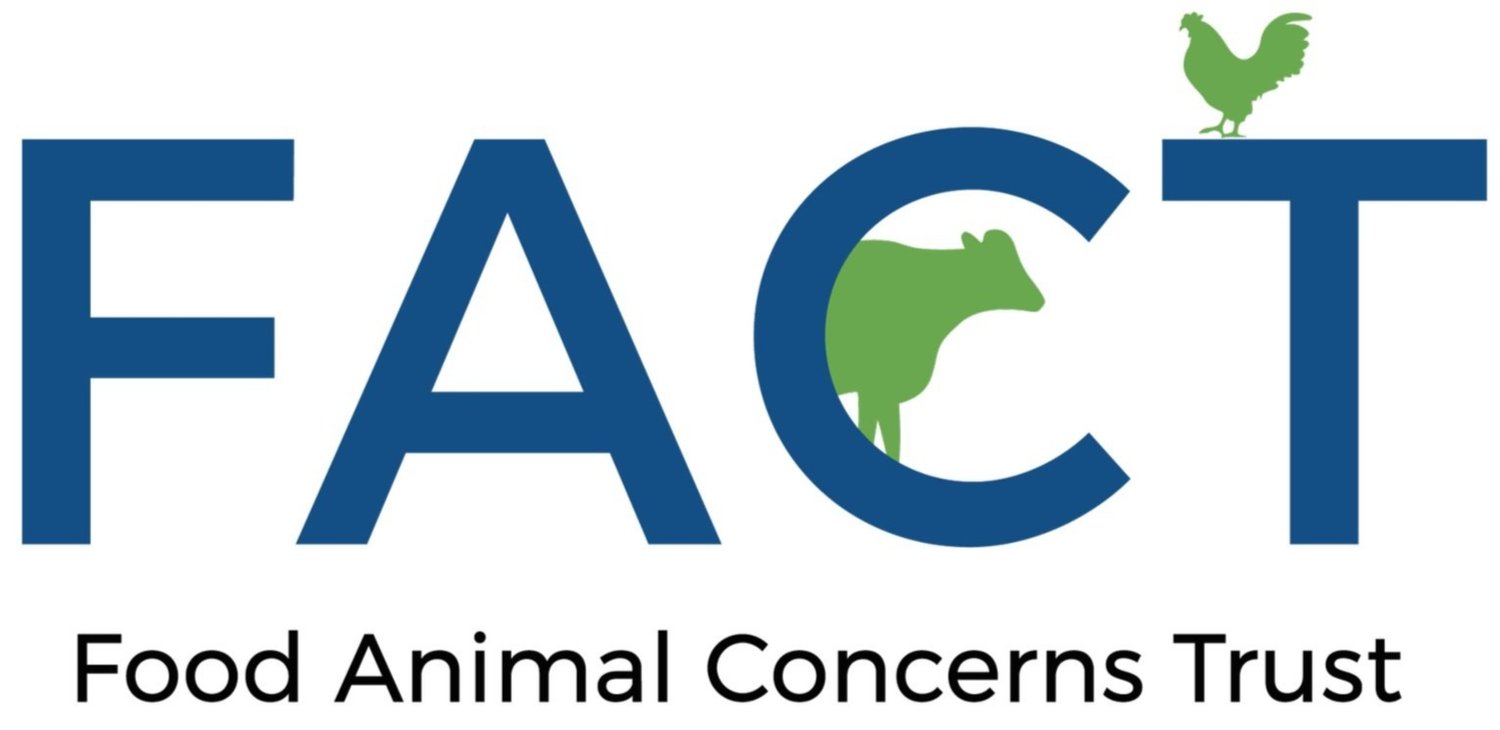All About the EATS Act….Both of Them
By Samantha Gasson, FACT’s Humane Farming Manager
While I love a witty acronym as much as the next person, I have to say, no one embraces them quite the way government does. A complete abandonment of any apologies for the overuse of acronyms is currently on full display as anyone following the 2023 Farm Bill is well aware. There is not one, but two EATS Acts related to agriculture up for inclusion in this year’s Farm Bill and they couldn’t be more different.
If your main exposure to agriculture is eating, then you are probably oblivious to the battle currently being fought in our nation’s capital, it’s not pretty and is unlikely to be resolved by September when our current 2018 Farm Bill expires.
For those of you more than a few years out of high school civics, the Farm Bill is a huge multi-year omnibus that covers everything from nutrition to crop insurance to conservation and all things ag-related in between. Here at FACT, we’ve been paying particularly close attention to the 2023 Farm Bill and the discussions surrounding it.
There are a few bills currently introduced as part of the 2023 Farm Bill that will impact the farmers in our network directly but for the most part, the Farm Bill is there to help the larger industrial farm businesses, and one of the EATS Acts is a prime example of a bill pandering to Big Ag. The Ending Agricultural Trade Suppression Act (not to be confused with the Enhance Access To SNAP Act which is focused on removing barriers faced by low-income college students when applying for SNAP benefits) seeks to eliminate states’ rights to regulate agricultural products beyond what is required by federal law.
The Ending Agricultural Trade Suppression Act is an important act to watch. It is such an egregious overreach of power and will affect everyone, not just farmers. In very simple terms this ‘bad’ EATS Act will allow producers of agricultural products to ignore other state’s laws (although they will still have to obey their state’s laws). Big Ag and their supporters claim the bill would help farmers, reducing regulatory burdens by completely eliminating states’ ability to regulate agricultural products beyond what is required by federal law. This would be an incredible overreach of power, steamrolling the rights of States to pass laws governing agriculture in their own states.
According to a recent analysis by Harvard Law School, this intentionally vague bill could potentially affect over a thousand state laws nationwide. None of our 50 states will be unaffected. If you live in Hawaii you have 10 laws that ag businesses from other states will potentially be able to ignore, those of you in the Sunshine State of Florida have 41, what about those of you in Texas….yep, the Lone Star state has 50 laws in jeopardy. Just to be clear, the farmers and ag businesses in your state will still have to comply with your state’s laws, however, those in other states will have the option not to.
Every corner of agriculture has the potential to be affected. Regulations regarding invasive pests and plant diseases, prioritizing food purchased from local farms, milk quality standards and horse slaughter laws, could all be affected by the ‘bad’ EATS Act. It is nothing but a race to the bottom.
U.S. Supreme Court Justice Louis Brandeis once said, "A single courageous State may, if its citizens choose, serve as a laboratory; and try novel social and economic experiments without risk to the rest of the country."
What's at risk here is the right of local communities to live and eat as they see fit without the influence of corporations they've never heard of dictating the terms of how the food they put on their table gets there.
We hope you’ll join FACT in urging Congress to reject the dangerous Ending Agricultural Trade Suppression Act in the Farm Bill and support local farmers like those in the FACT community everywhere. We’ve lost too many small farms.

